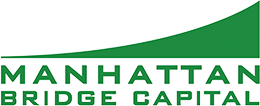For The Chief Executive Officer, Chief Financial Officer, And Financial Managers
Code of Ethics
Manhattan Bridge Capital, Inc. Code of Ethics Effective as of March 14, 2017
All employees, including but not limited to the Chief Executive Officer (the “CEO”), Chief Financial Officer (the “CFO”), all financial managers and all directors of Manhattan Bridge Capital, Inc. and/or its wholly owned subsidiary, MBC Funding II Corp. (collectively, the “Company”) are bound by the provisions set forth herein relating to honest and ethical conduct, including the handling of conflicts of interest and compliance with applicable laws, rules and regulations:
- The CEO, CFO and financial managers are responsible for maintaining the Company's accounting records in accordance with all applicable laws, and ensure that the accounting records are proper, supported, classified, and do not contain any false or misleading entries.
- The CEO, CFO and financial managers are responsible for the Company's system of internal financial controls and shall promptly bring to the attention of the Chairman of the Audit Committee, any information he or she may have concerning:
- significant deficiencies and material weaknesses in the design or operation of internal control over financial reporting which are reasonably likely to adversely affect the Company's ability to record, process, summarize and report financial data; and
- any fraud, whether or not material, that involves management or other employees who have a significant role in the Company's financial reporting, disclosures, or internal control over financial reporting.
- The CEO, CFO, all financial managers, directors and any other applicable employee are responsible for full, fair, accurate, timely and understandable disclosure in:
- reports and documents that the Company files with or submits to the SEC; and
- the Company's other communications with the public, including both written and oral disclosures, statements and presentations.
- No employee or director is permitted, directly or indirectly, to take any action to fraudulently influence, coerce, manipulate, or mislead any independent public or certified public accountant engaged in the performance of an audit or review of the financial statements of the Company that are required to be filed with the SEC if such person knew or was unreasonable in not knowing that such action could, if successful, result in rendering such financial statements materially misleading. For purposes of this Code of Ethics, actions that could, if successful, result in rendering such financial statements materially misleading include, but are not limited to, actions taken at any time with respect to the professional engagement period to fraudulently influence, coerce, manipulate, or mislead an auditor:
- to issue a report on the Company's financial statements that is not warranted in the circumstances (due to material violations of generally accepted accounting principles, generally accepted auditing standards, or other applicable standards);
- not to perform audit, review or other procedures required by generally accepted auditing standards or other applicable professional standards;
- not to withdraw an issued report; or
- not to communicate matters to the Audit Committee.
- All employees and directors shall promptly bring to the attention of the Chairman of the Audit Committee any information he or she may have concerning:
- evidence of a material violation of the securities or other laws, rules or regulations applicable to the Company or its employees or agents, or
- any violation of this Code of Ethics.
- All employees and directors shall not, during the term of their employment or affiliation with the Company, compete with the Company and may never let business dealings on behalf of the Company be influenced, or even appear to be influenced, by personal or family interests. All employees and directors shall promptly bring to the attention of the Chairman of the Audit Committee any information he or she may have concerning any actual or apparent conflicts of interest between personal and professional relationships, involving any management or other employees who have a significant role in the Company's financial reporting, disclosures or internal controls.
- The Company is committed to complying with both the letter and the spirit of all applicable laws, rules and regulations. The Company intends to prevent the occurrence of conduct not in compliance with this Code of Ethics and to halt any such conduct that may occur as soon as reasonably possible after its discovery. Allegations of non-compliance will be investigated whenever necessary and evaluated at the proper level(s). Those found to be in violation of this Code of Ethics, including failures to report potential violations by others, are subject to appropriate disciplinary action, up to and including termination of employment. Criminal misconduct may be referred to the appropriate legal authorities for prosecution.
- The Company will strive to keep confidential the identity of anyone reporting a possible violation. To facilitate the fullest compliance possible, and encourage employees to ask questions when presented with potential violations, the Company will not tolerate retaliation against any employee asking questions or making a good faith report in an attempt to comply with this Code of Ethics. Open communication of issues and concerns by all employees and directors without fear of retribution or retaliation is vital to the successful implementation of this Code of Ethics. All employees and directors are required to cooperate with internal investigation of misconduct and unethical behavior.
- Any waiver of this Code of Ethics may be made only by the Audit Committee and will be promptly disclosed as required pursuant to federal securities laws, regulations and applicable listing standards.
